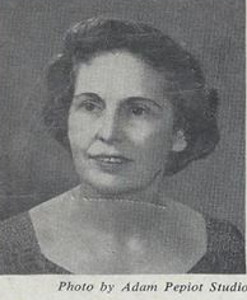Pioneer Surgeon: Dr. Ephraim McDowell

Author:
Josephine Rich
Publication:
1959 by Julian Messner, Inc.
Genre:
Biography
Series:
Messner Shelf of Biographies (World History)
Pages:
192
Current state:
This book has been evaluated and information added. It has not been read and content considerations may not be complete.
Book Guide
Search for this book used on:
On Christmas Day in 1809, Dr. Ephraim McDowell performed an operation that made medical history, since it was the first time that a surgeon dared to cut into the human abdominal cavity. A lynch mob raged outside with a rope to hang the "devil doctor"; his wife stood at the door with a pistol and the operation continued. Those twenty-five fateful minutes changed the course of surgery.
McDowell was raised on a Kentucky farm, and his skill in treating sick animals led to his decision to become a doctor. For five years he served apprenticeships, finally achieving his dream for further education by going to Edinburgh University. There he studied anatomy and realized the vital importance of dissection—a practice that shocked most Americans. He learned that he must seek truth in medicine, no matter how unpopular that truth might be.
It took courage to return to the Kentucky wilderness and fight for more advanced techniques in medical practice. He traveled for days on horseback through snowy mountains, operating as soon as his fingers thawed, the saddle-ache still in his spine. He battled ignorance and superstition as well as death. Once he operated on a tall, gawky youth, James K. Polk, who years later became the eleventh president of the United States. Another time he was assisted by General Andrew Jackson, a friend of the patient who insisted on his being there. McDowell was amused to hear the general say later that he would have preferred battle with Indians in ambush to being a doctor's helper.
For twenty-two years McDowell was the foremost surgeon west of the Allegheny Mountains; the only degree he held was an honorary one of M.D. conferred in 1925 by the University of Maryland. He often risked his life, his medical integrity and his family's security, but his courage and daring made him one of America's outstanding pioneer surgeons.
From the dust jacket
Mrs. Rich's inspiration for her second book, Pioneer Surgeon: Dr. Ephraim McDowell, came from a visit to his home in Danville, Kentucky, which has now become a national shrine. She says: "I knew he had to be put between covers for all young people hesitating to choose the difficult, right road, over the easy, popular one. Only Ephraim McDowell's absolute dedication to medical ethics -- the welfare of the patient over self -- could have supplied the necessary courage to perform his historic operation. Knowing with what cautious reluctance the twentieth-century medical world accepts startlingly new or progressive ideas, one can only imagine his plight one hundred and fifty years earlier." From the dust jacket of The Doctor Who Saved Babies: Ignaz Philipp Semmelweis
Find This Book
Search for this book used on:


